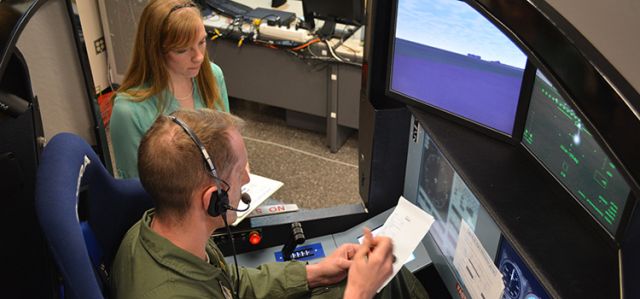Identification of Any Aircraft by Its Unique Turbulent Wake Signature
Document Type
Conference Paper
Publication Date
1-2009
Publication Source
47th AIAA Aerospace Sciences Meeting including The New Horizons Forum and Aerospace Exposition
Abstract
The theoretical groundwork for the detection of any aircraft from its unique turbulent wake signature will be discussed, and practical methods to implement this theoretical result will be recommended. During the mid-1990s, NASA conducted research on the detection of atmospheric turbulence using light detection and ranging equipment. This light detection and ranging technology was able to detect turbulent disturbances by the Doppler shift in the frequency of laser-emitted energy that is scattered from atmospheric aerosols.
Using this technology, the detection of turbulent. disturbances physically created by the passage of aircraft through the atmosphere can be developed. Traditional aircraft detection methods include pulse. Doppler radar systems that measure the frequency shift of radio frequency signals reflected off the skin of an aircraft. This method is currently being defeated by stealth technology. In a military application, light detection and ranging turbulent detection would be able to spot the unconcealable turbulent disturbances caused by aircraft, thereby defeating current stealth technology. In addition, research suggests that turbulent wake generators (i.e., aircraft) have unique turbulent energy signatures.
Using the principles of turbulent self-preservation, models can be created to predict both the Reynolds stress and momentum-defect signatures of aircraft as a function of their altitude and airspeed. By using statistical analysis of the turbulent wake, the Reynolds stress or momentum defect can be compared with computed models to determine the identity of the aircraft being targeted. The theoretical and practical manner in which this can be achieved is discussed, and examples of aircraft ranging from the F-15, F-16, F-13, and B-52 are provided.
ISBN/ISSN
978-1-60086-973-0
Copyright
Copyright © 2009, American Institute of Aeronautics and Astronautics
Publisher
American Institute of Aeronautics and Astronautics
Place of Publication
Orlando, FL
eCommons Citation
Garnet, Mark and Altman, Aaron, "Identification of Any Aircraft by Its Unique Turbulent Wake Signature" (2009). Mechanical and Aerospace Engineering Faculty Publications. 94.
https://ecommons.udayton.edu/mee_fac_pub/94
COinS




Comments
Permission documentation is on file.